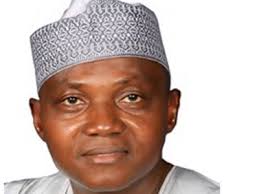

The Nigerian Export Promotion Council (NEPC) is an Agency of the Federal Government that focuses on the need for Nigerian exporters to deploy effective logistic supply chains to export their products to the international markets.
Taking over the reins of leadership from Olusegun Awolowo, is the new Chief Executive Officer, Dr. Ezra Yakusak, who holds a PhD in commercial law from the Ahmadu Bello University.
The Nigerian Export Promotion Council (NEPC) was established through the promulgation of the “Nigerian Export Promotion Council Decree No. 26 of 1976”, now an Act in line with the democratic governance of the Country.
This Act was amended by Decree No. 72 of 1979 and further amended by the Nigerian Export Promotion Decree No. 41 of 1988 and complemented by the Export (Incentives and Miscellaneous Provisions) Decree No. 18 of 1986.
Furthermore, the Nigerian Export Promotion Council (Amendment) Decree No. 64 and 65 of 1992 was promulgated to enhance the performance of the Council.
The Council is the leading Federal Government Agency charged with the responsibility of promoting non-oil export in Nigeria to diversify away from oil and build a formidable economy.
The Council has the mandate to promote non-oil exports as the key driver of the Nigerian economy and to position the export market as the growth opportunity of choice for private sector earnings and sustainable economic development.
NEPC is also mandated to promote the development and diversification of Nigeria’s export trade; assist in promoting the development of export related industries in Nigeria.
No doubt, exporters are facing challenges such as poor logistics and documentation, which are bottlenecks hindering Nigeria’s export market. Knowing that these challenges could make or mar export transactions in the Nation, Dr. Ezra Yakusak and his team are set to tackle them headlong.
Yakusak’s appointment is for an initial term of four years in accordance with the provision of Section 7 (1) of the NEPC (Establishment) Act, 1987, taking effect from 27th November, 2021, when the incumbent, Segun Awolowo, will complete his second term in office.
Until his appointment, Dr Yakusak, was the Director, Policy and Strategy, NEPC. NEPC, and has additionally served as Secretary to the Governing Board of the Council.
Recently, the Council was able to assist about 70 exporters to gain certification for the Hazard Analysis and Critical Control Point (HACCP), a third-party certification that gives credibility to Nigerian products to prove that they are free from biological, chemical and physical hazard for the international market.
Reports have it that Nigerian Export Promotion Council, NEPC, was established through the promulgation of the Nigerian Export Promotion Council Decree No. 26 of 1976, and was formally implemented in March 1977. The act was amended by Decree No. 72 of 1979 and further amended by the Nigerian Export Promotion Council Decree No. 41 of 1988. Appended to the law was the Export (Incentives and Miscellaneous Provisions) Decree No. 18 of 1986, as well as the Nigerian Export Promotion Council Amendment Decree No. 64 of 1992.
The last was authored to enhance the performance of the council by minimizing bureaucratic bottlenecks and increasing autonomy in dealing with members of the organised private sector. The Council has a governing board drawn from both the public and private sectors.
Other functions of NEPC are:
• To co-ordinate and monitor export promotion activities in Nigeria.
• To collect and disseminate information on products available for export.
• To collect and disseminate to local manufacturers and exporters information on foreign markets.
• To Provide technical assistance to local exporters in such areas as export procedures and documentation, transportation, financing, marketing techniques, quality control, export packaging, costing and pricing, publicity and in other similar areas.
• To maintain adequate and effective representation in other countries.
• To provide, directly or jointly, with training institutions, training for its staff and assist with the manpower development of the export community in Nigeria.
• To organize and plan the participation of Nigeria in trade fairs and exhibitions.
• To administer grants and other benefits related to export promotion and development.
• To undertake studies of the current economic conditions, with special attention to the export sector with the aim of advising the government on necessary policies and measures.
• To establish specific trade promotion facilities in Nigeria and in other countries including the establishment of permanent showrooms at important commercial centers in other countries.
• To engage in export promotion publicity
• To pursue the simplification and streamline of export procedures and documentation on a continuous basis.
• To assist in finding appropriate solutions to practical problems encountered by exporters in the process of exportation.
• To plan and organize outward trade missions and provide support from Nigeria.
• To perform such other functions as maybe conducive to the achievement of the objective of the Export Decrees.
Olamide Adeniji is a member of the editorial team of TheScript Newspaper



